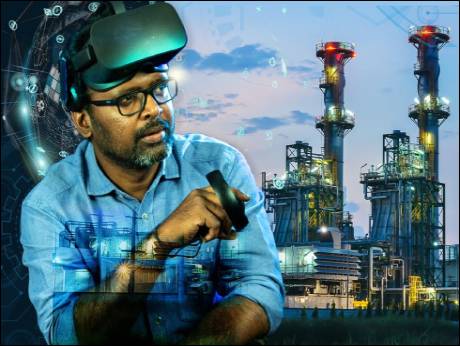
New Delhi, December 22, 2020: Industry leader in emerging technologies such as AR, VR, MR, IIoT and AI -- Fusion VR -- has unveiled probable measures to aid the adoption of industry 4.0 solutions globally for the Manufacturing sector.
Manufacturing excellence depends significantly on efficient systems, well designed processes, advanced machinery, good leadership and most importantly, the availability of skilled human capital. People have been and are still the key success factor in the manufacturing sector.
Lack of such skills and talent can hamper the smooth functioning of a manufacturing unit.
The US-based Manufacturing Institute says that manufacturers are willing to spend $26.2 billion on extensive internal and external training for all employees in 2020 to overcome the shortage of skilled workers. Industries choose to locate factories where there’s an abundance of qualified labor
The next industrial revolution or Industry 4.0 holds immense potential in closing the skills gap in industrial manufacturing. Most employees are practical learners and credible research indicated that they acquire 70% of their skills and knowledge from experiential learning. A combination of VR and AR technologies can have a transformative effect on the workforce and significantly shorten the learning curve. Enterprises can use immersive technologies to achieve the learning, development and certification goals that organizations set for employees. Training solutions using VR, AR and MR technologies can be developed and customized to match the organization’s needs and priorities. All employees can be accurately evaluated through data collection, KPIs and digital dashboards curated with proven brain-science techniques and Artificial Intelligence-based analyses.
Says Dr. C.S.S Bharathy, Founder, FusionVR: "A strategic combination of AR and VR technologies can help organizations deliver immersive, scenario-based, experiential learning. The approach is promising as its benefits span from improving productivity by reducing human errors, reduced time to gain operator proficiency, well-contained risks, and drastic saving on time and cost. Also, these technologies spark improvement in a technician or operator's ability to respond appropriately to critical emergency operations, establishing safety through proficiency."
Business and manufacturing leaders are urged to adopt Industry 4.0 technologies, provide strategic direction and resources to digitally transform their organizations for sustainable success in the 21st century.